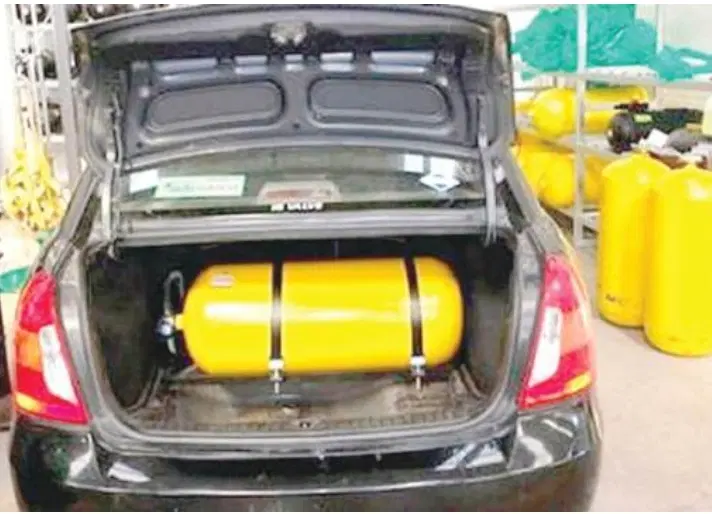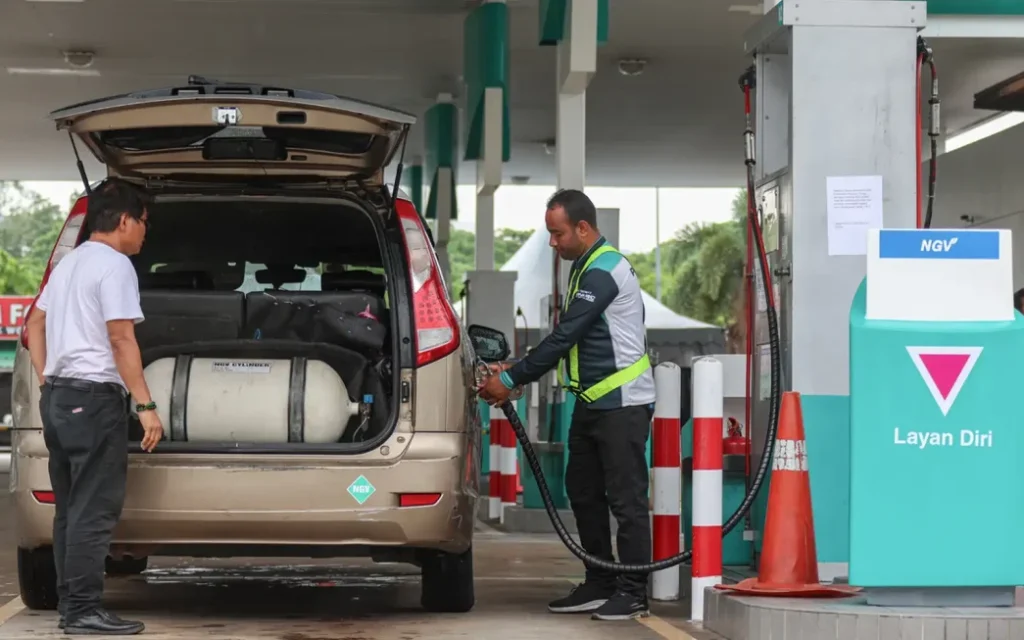Facts to Consider Before Converting to CNG (Compressed Natural Gas)

Converting your vehicle to run on CNG (Compressed Natural Gas) has become an increasingly popular alternative to traditional gasoline or diesel engines due to its environmental benefits and cost savings. However, there are important factors to consider before making the switch to ensure that it is the right decision for your vehicle, your budget, and your driving habits. Here are key facts to consider before converting to CNG:
1. Cost of Conversion
- Initial Conversion Cost: Converting a vehicle to CNG involves installing a CNG kit, which typically includes a cylinder, fuel system, and other necessary components. The cost can range from $2,000 to $4,000, depending on the vehicle and the complexity of the installation. This cost varies by region and the type of vehicle being converted.
- Maintenance Costs: While CNG engines are known for requiring less maintenance than traditional gasoline engines, there are some additional costs associated with CNG conversion. For example, CNG cylinders need to be replaced after a certain number of years (typically 15 years), and CNG fuel injectors may need occasional servicing.
2. Fuel Availability
- CNG Stations: One of the most important considerations is the availability of CNG refueling stations in your area. While CNG infrastructure is growing, it may not be as widespread or easily accessible as gasoline or diesel stations, especially in rural or less-developed regions. You should check the locations of CNG stations near your home, work, or along your usual routes to ensure you will have convenient access to CNG fuel.
- Refueling Infrastructure: While CNG stations are increasing in number, the network may still be limited compared to traditional fueling stations. In some areas, the lack of CNG stations could make it difficult to fuel up, leading to logistical issues.
3. Fuel Economy
- Energy Density Differences: CNG has a lower energy density compared to gasoline or diesel, meaning you will generally get fewer miles per gallon equivalent (MPGe) when driving on CNG. As a result, your vehicle may need more frequent refueling, especially on long trips. This is important to consider if you do a lot of highway driving or long-distance travel.
- Fuel Cost Savings: On the plus side, CNG is often cheaper than gasoline or diesel, depending on local market conditions. The overall fuel savings can help offset the initial conversion cost over time, particularly if fuel prices for traditional fuels are high.
4. Environmental Benefits
- Lower Emissions: CNG is a cleaner-burning fuel compared to gasoline or diesel. It produces fewer harmful emissions, including carbon dioxide (CO2), particulate matter, and nitrogen oxides (NOx). This makes it an environmentally friendly alternative, particularly for those looking to reduce their carbon footprint and support sustainability efforts.
- Air Quality: CNG vehicles contribute to improved air quality, especially in urban areas where vehicle emissions are a major contributor to air pollution. If you are concerned about the environmental impact of your vehicle, switching to CNG can be a positive choice.
5. Vehicle Compatibility
- Engine Type: Not all vehicles are suitable for conversion to CNG. Most modern gasoline vehicles can be converted to CNG, but older models or certain types of engines may not be compatible. It’s important to consult with a professional installer or mechanic to assess whether your vehicle can be safely converted.
- Performance: CNG-powered vehicles generally perform well, but there may be slight differences in power and acceleration when compared to gasoline engines. Some drivers may notice a minor reduction in performance, particularly in older vehicles, although newer CNG systems have improved significantly in this regard.
6. Safety Considerations
- CNG Cylinder Safety: CNG is stored in high-pressure cylinders, which are built to rigorous safety standards. However, these cylinders must be properly maintained and periodically inspected to ensure they remain safe. CNG tanks are generally made of composite materials, which are highly resistant to corrosion and damage.
- Crash Safety: While CNG systems are designed to be safe, any high-pressure fuel system could present risks in the event of an accident. It’s essential to ensure that the conversion is done by a certified professional and that the system is regularly checked for leaks or wear and tear.
- Ventilation: Proper ventilation is crucial when using CNG. In the event of a fuel leak, CNG, being lighter than air, can dissipate quickly, but it’s important to ensure that the vehicle is properly ventilated to prevent the accumulation of gas inside the vehicle.
7. Resale Value
- Impact on Resale: Converting to CNG may affect your vehicle’s resale value, as prospective buyers may be hesitant to purchase a car that has been modified for CNG. The market for CNG-converted vehicles is still niche, and some buyers may be concerned about the availability of refueling stations or the cost of conversion. However, as CNG adoption grows, this may change.
- Longevity and Durability: CNG engines tend to last longer than gasoline engines due to the cleaner combustion process. As a result, you may find that your vehicle requires fewer repairs and lasts longer than it would with a traditional gasoline engine, which can help maintain its value over time.
8. Government Incentives and Policies
- Tax Incentives and Subsidies: In some countries and regions, governments offer tax incentives, rebates, or subsidies for converting vehicles to CNG, as part of efforts to promote cleaner energy and reduce greenhouse gas emissions. Be sure to check for any available financial incentives that could reduce the cost of conversion.
- Regulatory Requirements: Some regions have specific regulations for CNG vehicles, including safety inspections, emissions testing, and certification of the conversion kit. It’s important to ensure that the conversion meets all local legal and regulatory requirements.
9. Long-Term Considerations
- Future Fuel Availability: As the global shift towards renewable energy intensifies, there is growing concern about the future availability of fossil fuels, including natural gas. While CNG is considered a cleaner alternative to gasoline and diesel, it is still a non-renewable resource. If your goal is to transition to a more sustainable, long-term solution, you might also want to explore electric vehicles (EVs) as an alternative to both gasoline and CNG.
- Technological Advancements: The CNG market is evolving, and new technologies may continue to emerge that improve fuel efficiency, reduce conversion costs, and enhance overall vehicle performance. Staying informed about these advancements can help you make the most informed decision about converting to CNG.
Converting to CNG can offer several benefits, including lower fuel costs and a cleaner environmental footprint. However, it is important to weigh the upfront cost, the availability of refueling infrastructure, vehicle compatibility, and safety factors before deciding to proceed. By considering these key factors, you can make a well-informed choice about whether CNG is the right option for your vehicle and driving needs.



Responses